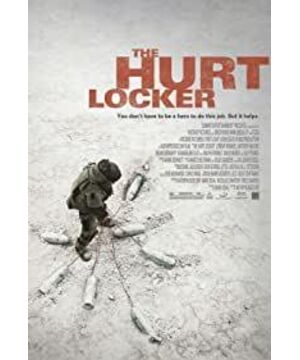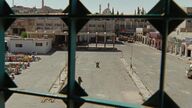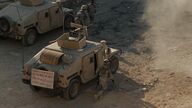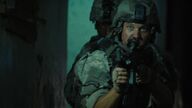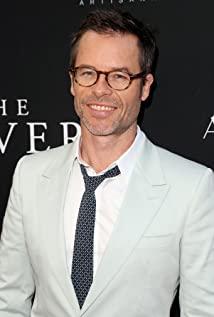[Slovenia]
Slavorze Zizek's translation by Wang Liqiu.
When Catherine Bigelow's "The Hurt Locker" surpassed James Cameron's "Avatar" and won all the Oscars, people were perceptually Take this victory as a sign of everything that happened in Hollywood: a masterpiece whose low-cost production aimed at an independent film festival surpassed that technically gorgeous enough to hide the simple dullness of the story. Does this mean that Hollywood is not just a sensational machine, it also knows how to appreciate the creative efforts of the fringe? Maybe—but this is an exaggerated possibility.
Out of all its mystery, "Avatar" unmistakably stands on the side of those who oppose the global military-industrial complex, portraying the superpower's military as a cruel and destructive force serving the interests of large corporations. On the other hand, "The Hurt Locker" expresses the US military in this way-it is more in line with its own public image in our humanitarian intervention and militaristic Pacific era.
The film greatly ignored the great debate about US military intervention in Iraq. Instead, it focused on the daily sufferings of ordinary soldiers forced to deal with danger and destruction. In a pseudo-documentary style, it tells—or rather, presents a series of vignettes—the story of the explosive ordnance disposal (EOD) team and their potentially lethal work in dismantling bombs. This choice is deeply symptomatic: Although soldiers do not kill, they risk their lives every day to dismantle bombs set by terrorists for the purpose of killing civilians. Is there anything more symptomatic than this sensitivity to our liberalism? Our troops in the war on terrorism (also known as the prolonged war), even when they bomb and destroy-fundamentally different from the EOD squad-are not also patiently dismantling terror to ensure a safer life for citizens Is it a molecular network?
But this movie has more to say. "The Hurt Locker" brought to Hollywood two recent Israeli films about the 1982 Lebanon War, Ali Forman's live documentary "Waltz with Bashir" and Samuel Maoz's "Lebanon" The trend of success.
"Lebanon" is based on Maoz's own memory as a young soldier, and rendered the fear of war and claustrophobia by filming most of the plot from the inside of a tank. The film follows four veterans-they are ordered to use tanks to "sweep" enemy forces bombed by the Israeli air force in a Lebanese town. In an interview at the 2009 Venice Film Festival, Youaf Donat, an actor who played the role of a soldier fifteen years ago, the soldier Maoz, said: "Is this a movie that makes you think,'I just watched a movie Movie's movie. This is a movie that makes you feel like you were involved in war." In a similar way, "Waltz with Bashir" also rendered the horror of the 1982 conflict from the perspective of an Israeli soldier.
Maoz said that his film is not a condemnation of Israeli policy, but a personal description of everything he has experienced. "The mistake I made was to call this movie "Lebanon" because the Lebanese War is essentially the same as all other wars, and for me, attempts to politicize it will only flatten this movie. Works." This is the purest ideology: the refocusing of the traumatic experience of the perpetrators enables us to erase all the ethical-political aspects of this conflict. Beijing: Why did the Israeli army go deep into Lebanon? Therefore, this kind of "humanization" is used to obscure the key points: the need for a brutal analysis of everything we are doing and everything in danger in our political-military activities. Our political-military struggles are not opaque histories that brutally disrupt our secret personal lives-they are some kind of action in which we are fully involved.
More generally, the "humanization" of this kind of soldiers (toward the wisdom of the proverb "to make mistakes is humanity") is a key element of the ideological (self-) presentation of the Israel Defense Forces (IDF). The Israeli media like to elaborate on the imperfections of Israeli soldiers and their psychological traumas, neither showing them as perfect war machines, nor as superhuman heroes, but only portraying them as possible like all normal people. Ordinary people who have been involved in history and the trauma of war, and who have made mistakes (during the war).
For example, in January 2003, the Israel Defense Forces demolished the home of a family member of a suspected terrorist. They especially emphasized the kindness of doing so, and even helped the family remove the furniture before demolishing the house with a bulldozer. Earlier, the Israeli media reported a similar incident. When an Israeli soldier searched the house of a Palestinian suspect, the family’s mother called her daughter’s name to calm her down, and the assailant found the frightened girl’s name and his own daughter’s name Exactly the same. So on a whim, he took out his wallet and showed the Palestinian mother a picture of his daughter.
It is easy to discern the falseness of this sympathy gesture: despite the political differences, we are all people with the same concept of love and care, which neutralizes the influence of the actions that the soldiers were effectively carrying out at that time. . For the mother, the only appropriate answer is of course not to ask the soldier this question: "If you are really human like me, why do you still do what you are doing now?" The soldier might be there. Seek refuge in the materialized duty: "I don't like it, but this is my (must obey) order," so he evades all responsibility for his actions.
The message of this kind of humanization is to emphasize that the complexity of people is the gap between the role they are forced to play against their true nature. "In my family, the army is not a gene," said a soldier interviewed in the IDF documentary "Israel Defense Forces" by Claude Lanzman-he was surprised to discover that he was a professional clerk. .
This brings us back to The Hurt Locker. Its description of the daily fears and traumatic effects of serving in a war zone seems to keep it away from the emotional celebration of the humanitarian role of the US military—an example of this is John Wayne’s famous "War in Vietnam." In any case, we should always remember that the concise and realistic representation of the absurdity of war in "The Hurt Locker" confuses and therefore makes this fact acceptable-the heroes of "The Hurt Locker" and "Vietnam" The heroes of "Fire of War" do exactly the same job. In the invisible ideology, the ideology is here: we are over there, with our people, identifying with their fear and pain, without asking what they did in the war in the first place.
[Note] Translated from Slavoj Žižek: A Soft Focus on War How Hollywood hides the horrors of war. For the original text, see http://www.inthesetimes.com/article/5864/a_soft_focus_on_war/ .
View more about The Hurt Locker reviews


